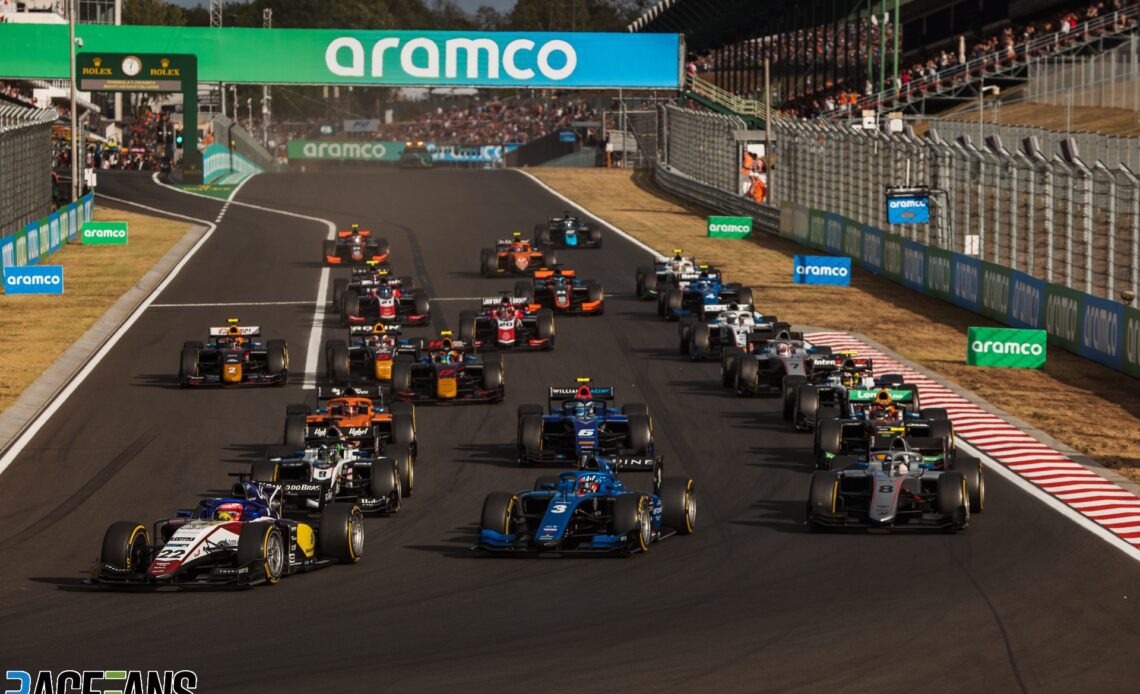Formula 1’s ongoing drive to become more environmentally conscious in how it goes racing has seen the sport transform over the last twenty years.
Moving to V6 turbo hybrid engines in 2014 saw the fuel loads required for grands prix dramatically reduce. This season, F1 has introduced a new fuel E10 fuel blend that includes a 10% ethanol biocomponent – almost double that which the world championship used in 2021.
With the new engine formula set to be introduced for the 2026 season, F1 is set to switch to “100% sustainable” fuels. However, that same requirement is also due to be applied to the new power units used in Formula 2 cars from the 2024 edition of the championship, making F2 effectively a testbed before Formula 1 adopts the fuel in 2026.
However, those plans have proved somewhat controversial. The FIA, Formula 2 CEO Bruno Michel and F2 team bosses are united in agreement moving the second-tier series to a greener and more sustainable future is the right thing to do. But some of F2’s team managers have expressed their concerns about the series being made to use new and untested fuel technologies to help it be prepared for Formula 1.
Before DAMS were taken over by Charles Pic, the team’s former managing director, Francois Sicard, told RaceFans that he and other F2 bosses at the time were cautious about having to take on new fuel technology in the series.
“We have to go greener in every category, so going biofuels for me is a good idea,” Sicard said. “But we have to be careful not to try to experiment to new expensive technology.”
With the new invitation issues for engine manufacturers to tender for supplying new power units to F2 from 2024, it appears that the championship is set to be used to put sustainable fuel through its paces before it is introduced into Formula 1. But should it be?
For
With Formula 1 being not just the pinnacle of motorsport but by far the most high-profile and lucrative of the FIA’s world championships, it makes a lot of sense that the sport should not be left to experiment with new and potentially risky technologies, sporting rules and formats if they can be proven elsewhere first. As F2 CEO Bruno Michel told RaceFans, the series is well suited to taking on such a role.
“It is much easier for us to do it because we are a single make category, than for Formula 1 where they have several engine suppliers, several fuel suppliers,” Michel told RaceFans. “Imposing something in Formula 2 is much easier than it…
Click Here to Read the Full Original Article at RaceFans…

